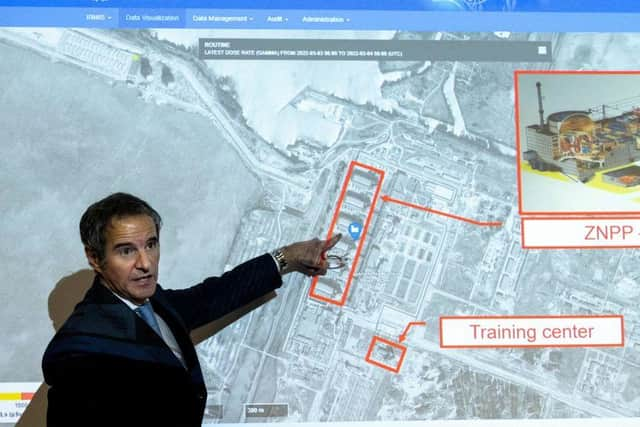Sheffield University nuclear expert speaks out after Russia’s attack on Zaporizhzhia nuclear plant in Ukraine
and live on Freeview channel 276
Speaking on BBC News, Professor Claire Corkhill, a nuclear materials expert from the University of Sheffield, said one of the major problems was if tpower was cut to the Zaporizhzhia nuclear plant in south-eastern Ukraine.
She said: “We’re not looking at another Chernobyl accident but the primary concern here is that the electricity supply gets cut off, it stops the pumps from working that cool the reactor and if that were to happen the nuclear fuel inside would melt down and a series of reactions that would occur leading to explosions and the release of radioactivity to the local area.”
Advertisement
Hide AdAdvertisement
Hide AdDefence Secretary Ben Wallace said that Russian President Vladimir Putin was “playing with fire” by attacking the Zaporizhzhia site – a move Western officials deemed unprecedented.


Officials said the site was now likely to be under Russian control but with Ukrainian staff still on the ground to maintain safety.
Speaking at a press conference in Copenhagen, Mr Wallace said the move was “incredibly dangerous”.
“It’s not just dangerous for Ukraine and Russia, it’s dangerous for Europe, and it is playing with fire that really is beyond anything that has to do with logic or necessity,” he said.
Advertisement
Hide AdAdvertisement
Hide AdAfter speaking with Ukrainian authorities on Friday, Rafael Grossi, the director general of the IAEA, the UN’s nuclear watchdog, said a building next to the reactors was hit and not a reactor itself.
“All of the safety systems of the six reactors at the plant were not affected at all and there has been no release of radioactive material,” he said.
“However, as you can imagine, the operator and the regulator have been telling us that the situation naturally continues to be extremely tense and challenging.”
Earlier this week, Mr Grossi already had warned that the IAEA was “gravely concerned” with Russian forces conducting military operations so close nearby.
Advertisement
Hide AdAdvertisement
Hide Ad“It is of critical importance that the armed conflict and activities on the ground around Zaporizhzhia nuclear power plant and any other of Ukraine’s nuclear facilities in no way interrupts or endangers the facilities or the people working at and around them,” he said.